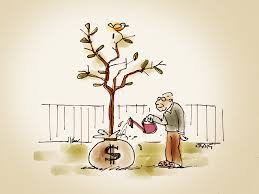 Let’s say that you wanted to learn tennis. What’s the first thing you should focus on? Should you figure out which racquet to buy? Whether it has a leather grip or fiberglass frame? Should you buy shoes that suit the surface you’re playing on?
Let’s say that you wanted to learn tennis. What’s the first thing you should focus on? Should you figure out which racquet to buy? Whether it has a leather grip or fiberglass frame? Should you buy shoes that suit the surface you’re playing on?
No, you weirdo. The first thing you should do is grab any tennis racquet, put on some old sneakers, and hit a couple of thousand shots. Practice. Work on your technique. Everything else is a distraction.
Yes – details like your choice of racquet or shoes might tweak the performance of someone like Andre Agassi. But even if I had the best tennis racquet in the world, Andre Agassi would still beat the crap out of me with a lousy wooden racquet.
When you’re a beginner, details like these don’t matter. They only serve to distract you from the big picture.
The biggest mistake that beginners make is to focus way too much on the minutia.
Stuff That Sounds Important, But Doesn’t Actually Matter
The same goes for investing. Consider the stuff that preoccupies investors these days:
- Financial news: CNBC gives us a neverending deluge of information, complete with flashy charts to make us believe this stuff is important. OMG the Fed is tapering their bond purchases! Investors are getting nervous about Crimea! The P/E ratio of the stock market is too high!
- How the market is doing: Amateur investors love to debate over when’s a “good” time to invest. Remember my uncle who asked me what to invest in? When I suggested looking into a simple stock-index ETF, he wrinkled his nose and said “But the market is doing so badly right now!”
- Fancy terms and concepts: I was eavesdropping on a conversation between a wealth manager and an investor recently (because I’m kaypoh). The wealth manager started throwing around terms like “Quantitative Easing” and “yield curve”. The investor just stared blankly back. I could almost see the huge thought bubble over his head saying, “Do I actually need to know this stuff to invest?”
It’s interesting how investors can spend years debating minutia like these – and never get any actionable insights!
Is it any wonder that many beginner investors get so overwhelmed that they simply throw their hands up and tell themselves, “I’ll figure it out later”?
The truth is, we don’t need to know this stuff to invest. Investing has got nothing to do with valuation ratios or earnings estimates. It’s got nothing to do with GDP forecasts and economic projections. It’s got nothing to do with how skilled your wealth manager is or where he thinks the market is going.
So if details like these doesn’t matter, what’s truly important?
The Only Two Concepts You Need To Know
At its core, investing boils down to just two things:
- Invest in assets
- Diversify across them
Depending on who you talk to, “assets” might sound like a boring accounting term, or a vaguely dirty idea. (Sorry, I couldn’t resist) But at its core, assets are simply stuff that will produce more value in the future.
Farmland is an asset. Real estate is an asset. A bond is an asset (because it pays you interest). A stock is an asset (because it lets you partially own a business). A stock market is an asset. Focus on owning assets, and you’re on the right track.
Do you need to own every single asset? Nope. As Warren Buffett says: “No one has the ability to evaluate every investment opportunity.” Pick the simplest ones (we’ll talk about them in a second), and move on.
Next comes the issue of risk. Nobody is perfect when it comes to investing. No matter how valuable you think an asset is, anything can happen. Russia can default. Lehman Brothers can fail. Singtel can start charging for Whatsapp (horrors!).
Which is why we spread out our risk by diversifying. We buy many different assets. We buy many different types of assets. That way, no single event can cripple us. As long as you’re diversified, things will turn out fine over the long run.
Invest in assets. Diversify across them. That’s all you need to know.
How Normal People Should Invest
“But wait,” I hear you say, “How do I figure out which assets to buy? I don’t know anything about Finance!”
Relax. Remember what we said at the beginning. You don’t need to know complicated financial formulae. You don’t even need to learn how to pick stocks. Investing is actually much simpler than that.
As Warren Buffett wrote in his latest letter to Berkshire Hathaway shareholders:
I have good news for these non-professionals: The typical investor doesn’t need this skill (of evaluating business prospects)… The goal of the non-professional should not be to pick winners – neither he nor his “helpers” can do that – but should rather be to own a cross-section of businesses that in aggregate are bound to do well. A low-cost S&P 500 index fund will achieve this goal.
A low-cost S&P 500 index fund containing 500 different stocks. It not only owns assets, but it also diversifies across them. It’s so simple, it’s brilliant.
By the way, you don’t have to settle for just the S&P 500. You can localize it by investing in a Straits Times Index fund. You can go global by investing in an international stock market index. You can even diversify by investing in a bond market index to protect you during the bad times.
Yes, that sounds like a lot of options, but it’s really quite simple. Just remember to always go back to the basics: Invest in assets. Diversify across them.
Focus on the big picture, and you’ll be on the right track.
Images: t0msk

[…] a recent blogpost, I mentioned that the two most important things you need to know about investing […]